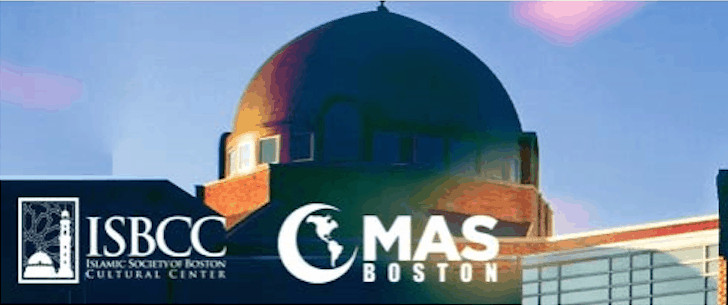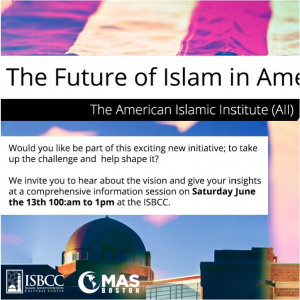The Islamic Society of Boston’s Building Controversy

In January 2000, the Boston Redevelopment Authority (BRA) approved a request by the Islamic Society of Boston (ISB) to build a mosque and community center in a multi-faceted project. The two parties entered into a Land Disposition Agreement on May 16, 2003, outlining the terms of the agreement and setting up a timetable for the project’s completion.
The building of the mosque and community center was intended to be completed in two phases. The Center for Security Policy has obtained a copy of the original Land Disposition Agreement, which outlines the phases as such:
“Phase 1” shall mean that portion of the Improvements consisting of the mosque, cultural center, parking and landscaping.
“Phase 2” shall mean that portion of the Improvements consisting of the school and underground parking.
The Improvements to be completed by the ISB were defined as “a mosque, cultural center, school, landscaping and related improvements, to be accomplished by the Redeveloper [ISB] pursuant to the Final Working Drawings and Specifications.”
According to the Land Disposition Agreement, the ISB was to begin construction on Phase I within 60 days of obtaining the deed to the land, and construction for Phase II was supposed to begin within five years of the issuance of the certificate of occupancy for the construction completed under Phase I. Construction for Phase I was to take no longer than 19 months and construction for Phase II was to be completed within 7 years of the issuance of the certificate of occupancy following Phase I. The certificate of occupancy for Phase I was issued in 2008.
Before the Land Disposition Agreement was ever signed, the mosque came under scrutiny. The ISB was founded in the 1980s and began looking to relocate its facilities in the 1990s before eventually reaching an agreement with the BRA to purchase a plot of land known as Parcel R-14. Parcel R-14 is located in Roxbury and is across the street from the Roxbury Community College (RCC).
In 2002, when William Sapers, a member of the Board of Trustees for the Roxbury Community College Foundation, learned of the ISB’s plans to construct a mosque and community center next to the RCC, he became worried due to the ISB’s connections to terrorism. Throughout the next few years, he successfully raised public awareness of these ties to terror, and he was actually sued by the ISB for defamation. Sapers took particular issue with the amount of money the ISB paid for Parcel R-14, which was valued at approximately $401,000 but was purchased for $175,000. The mosque was given the plot for a reduced price with the understanding that money it did not spend would go back to the community and the RCC in the form of services provided.
Although Phase I of the building was eventually completed, the BRA has made multiple concessions to the ISB rather than forcing it to complete construction within the original guidelines outlined by the Land Disposition Agreement. Part of the ISB’s plan for Parcel R-14 was to build a school and a high capacity parking garage. (A smaller parking garage was built in Phase I.) According to a memorandum from August 2013, these were originally intended to be built within three years of the issuance of the certificate of occupancy for construction from Phase I, which would have meant that they would be completed by the end of 2011. However, the ISB was given until December 31, 2016 to begin the construction for this project.
According to the terms of the original Land Disposition Agreement, Phase II should have been completed by this year, meaning that the ISB should have finished the building of the school and the parking garage. The source for the Center for Security Policy, who provided the copy of the Land Disposition Agreement and a number of other documents, said that the construction of this parking garage was an important part of the original deal between the BRA and the ISB because the Roxbury Crossing area of Boston does not have enough parking spaces to accommodate its population. The ISB has over 1,000 people attend Friday prayers each week so a full-capacity parking garage on the site of the new mosque and center would undoubtedly alleviate regular parking problems. Additionally, the ISB’s proximity to the RCC would help the college as well.
According to the Center for Security Policy’s source, the ISB tried to convince the then-president of the RCC to allow them to build an above-ground parking garage on one of the RCC’s existing parking lots. This was unsuccessful, in large part due to William Sapers’ scrutiny of the ISB’s connections to terrorism. A copy of an amendment issued in January 2014 to the Land Disposition Agreement was provided to the Center for Security Policy, in which the BRA agreed to extend the deadline for the beginning of Phase II construction to December 31, 2016.
As outlined above, the ISB successfully postponed the beginning of construction for both aspects of Phase II until the end of 2016. Should it fail to procure proper funding and begin construction, it will face sanctions and possible court action.
The ISB is moving to complete Phase II, and has plans, according to email correspondence obtained by the Center for Security Policy, to create a school of higher learning called the American Islamic Institute (AII). The Center for Security Policy’s source provided a copy of a flier for an information session for AII held at the Islamic Society of Boston Cultural Center (ISBCC) mosque in Roxbury.
The AII is proposed as a $15 million facility. It will not be easy for the ISB to obtain such large funds. Phase I construction cost $15.5 million, $8.6 million of which came in donations from Saudi Arabia and other Gulf countries. The ISB now has a year and a half to raise $15 million, yet the highest income flow rate the ISB ever experienced in a year-and-a-half period was $4.2 million in 2004-2005. The majority of that income at that time came from the Gulf. Yet Saudi Arabia is now strategically opposed to the Muslim Brotherhood, whose activists in America founded the ISB. The United Arab Emirates, another large source of donations for the ISB, has actually declared the Muslim American Society – the group that manages the ISBCC mosque – as a terrorist entity. It is hard to see how the ISB can raise more than triple the amount of its best historical haul after having lost favor with its former Gulf patrons.
Interestingly, the ISB doesn’t mention its financial obligations to the City of Boston or even the fact that it must build a parking garage in any of the AII fundraising materials obtained by the Center for Security Policy.
William Sapers’ suspicions of the ISB were not wrong: together, the ISB and the ISBCC are known to have extensive connections to terrorism. Both have ties to the Muslim American Society, described as the “overt arm” of the Muslim Brotherhood. A 1991 memorandum by the Brotherhood outlined its goal to wage “civilization jihad” against Western targets, seeking to undermine Western society in preparation for future violent jihad.
The ISB’s first president, Abdulrahman Alamoudi, is a Muslim Brother and convicted Al Qaeda financier.
Mosque member Aafia Siddiqui was arrested in Afghanistan for plotting to attack New York City, and she tried to grab a rifle and attack military officers and FBI agents in prison.
Member Tarek Mehanna travelled to Yemen to receive terrorist training and plotted to attack a Boston mall; his co-conspirator, Ahmed Abousamra, was wanted by the FBI until he was killed in an airstrike in Syria last month while serving with the Islamic State. Jamal Badawi, a member of the ISB’s board of trustees, was cited as an unindicted co-conspirator in the Holy Land Foundation terrorism-funding trial. Yousef al-Qaradawi, another member of the board of trustees, is the Chief jurist of the Muslim Brotherhood and head of the Union of Good, which finances Hamas. Usaama Rahim, the Boston man who tried to attack police officers with a machete last month, was connected to the ISBCC through his brother, a former imam in its Ella Collins Institute. Additionally, the ISB was attended by the Tsarnaev brothers, who carried out the 2013 Boston Marathon Bombing.
Given the ISB’s ties to terror, one must wonder why the city of Boston allowed it to purchase and develop Parcel R-14 in the first place. The ISB was allowed to purchase the land cheaply because it would make up for the difference between value and cost through contributions to the community, but it instead it has brought indoctrination to violence and terrorism to the city.
Additionally, one must question why the ISB has been unable to meet the contractual obligations outlined in the Land Disposition Agreement; an organization that cannot meet its deadlines and pay its bills should not be given leniency.
Boston should use the ISB’s inability to honor its contracts as a means to dismantle the mosque from within.
- Military Starship: How SpaceX Is About to Make America Globally Dominant - March 4, 2025
- The Cautionary Tale of Zheng He - December 4, 2024
- Frank Gaffney departs CSP after 36 years - September 27, 2024

